Physicist Daniel C. Ralph named head of Cornell nanoscale facility
Daniel C. Ralph, the Horace White Professor of Physics, has been named the L.B. Knight Director of the Cornell NanoScale Science and Technology Facility (CNF), starting July 1.
The CNF is a national user facility that provides state-of-the-art resources for research projects that encompass physical sciences, engineering and life sciences. Researchers use CNF's fabrication, synthesis, computation, characterization and integration resources to build structures, devices and systems spanning the range of atomic to millimeter length scales.
Ralph first started working in the CNF in 1987, when he was a graduate student investigating electrical transport and quantum defects in metallic nanostructures as small as 15 atoms in diameter.
After a postdoctoral appointment at Harvard during which he continued to use the CNF for sample fabrication, Ralph joined the Cornell physics faculty in 1996 and has been an active CNF user ever since. He has served on the CNF Executive Committee since 1998 and has chaired that committee since 2007.
Ralph has led the nanomagnetics thrust in Cornell's Center for Nanoscale Systems since 2001, has served as director of the Laboratory of Atomic and Solid State Physics since 2006, and was appointed Horace White Professor of Physics in 2008. He is a founding member of the Kavli Institute at Cornell for Nanoscale Science.
His research focuses on the fabrication of nanometer-scale devices and the measurement of their electronic and magnetic properties. Recent highlights from his research group include measurements of the electrical properties of individual molecules and studies of magnetic devices controlled by torque from spin-polarized currents rather than by magnetic fields.
Most read news
Organizations
Other news from the department people
These products might interest you
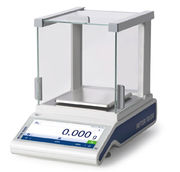
MS-Präzisionswaagen by Mettler-Toledo
Trusted Results at Your Fingertips
Capacity from 320 g to 12.2 kg, readability from 1 mg to 100 mg
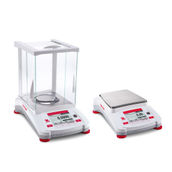
Precision balances by Ohaus
High-performance precision balances for everyday use in laboratories & industry
From milligram-accurate measurement of small samples to routine weighing in the kilogram range
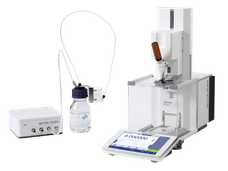
Automatische XPR-Waagen by Mettler-Toledo
Production of standards, samples and concentrations - fast and reliable
Automate the weighing processes in your laboratory - ideal also for sample prep at chromatography
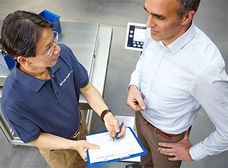
Good Weighing Practice by Mettler-Toledo
Your Concrete Weighing Quality Assurance Plan
GWP Verification service
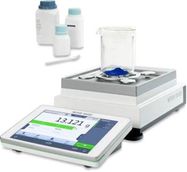
XPR Precision Balances by Mettler-Toledo
Fast and Accurate Precision Weighing Even in Difficult Conditions
XPR Precision Balances / Solutions to support you with data management, traceability and regulatory compliance
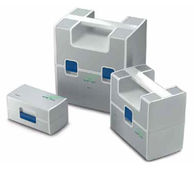
Carepacs by Mettler-Toledo
Professional CarePacs for smooth routine testing
Tweezers, gloves and other accessories for professional weight handling
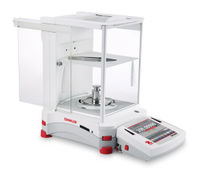
Balances analytiques by Ohaus
Analytical balances with outstanding weighing performance, as easy to use as a smartphone
These space-saving analytical and semi-micro balances are surprisingly intuitive to use

Get the chemical industry in your inbox
By submitting this form you agree that LUMITOS AG will send you the newsletter(s) selected above by email. Your data will not be passed on to third parties. Your data will be stored and processed in accordance with our data protection regulations. LUMITOS may contact you by email for the purpose of advertising or market and opinion surveys. You can revoke your consent at any time without giving reasons to LUMITOS AG, Ernst-Augustin-Str. 2, 12489 Berlin, Germany or by e-mail at revoke@lumitos.com with effect for the future. In addition, each email contains a link to unsubscribe from the corresponding newsletter.
Most read news
More news from our other portals
See the theme worlds for related content
Topic world Synthesis
Chemical synthesis is at the heart of modern chemistry and enables the targeted production of molecules with specific properties. By combining starting materials in defined reaction conditions, chemists can create a wide range of compounds, from simple molecules to complex active ingredients.

Topic world Synthesis
Chemical synthesis is at the heart of modern chemistry and enables the targeted production of molecules with specific properties. By combining starting materials in defined reaction conditions, chemists can create a wide range of compounds, from simple molecules to complex active ingredients.




























































